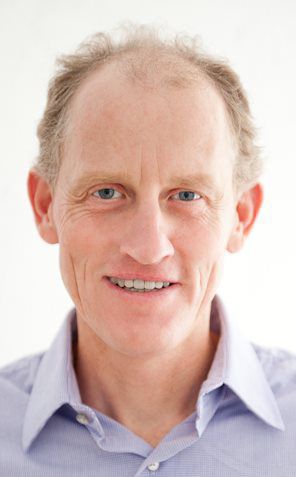As a bright September day was turning to night on day two of the Barron for U.S. Senate Climate Campaign, our five-man team was at 12,000 feet in a barren basin on the south side of Kings Peak just beyond a tumbled field of huge ragged boulders.
I was traveling with my two brothers, an old friend from Alta ski patrol days and a filmmaker friend committed to documenting our two-week hike and bike trip. We’d summited earlier in the day, but were slowed by tough terrain and were forced to hunker down in 60-mile-per-hour gusts near a cold clear lake, just as darkness fell.
Lying there under dark open skies exposed like that reminds you how small one person is in the big scheme of things. And because this trip was about bringing political will to the 2016 election for action on climate change, I was struck by the contrast between how small one person can feel and how big an impact human beings altogether can have. We have changed the global climate system, and I believe, together we can take effective, nonpartisan action to slow and reverse the change.
Walking and biking 650 miles across Utah on this two-week trek from the Wyoming border over Utah’s highest peak to its lowest valley at the Arizona state line allowed me to talk with a lot of Utahns about climate change. Some agree that action is a priority and some say that climate changes naturally, and it’s not a problem. In a conversation with an older man in Escalante, I put climate change in terms of air pollution. He acknowledged that Salt Lake City has a problem for sure, but that down here it wasn’t an issue.
While it may not be evident, there are no boundaries, no safe zones from climate change. Because global climate is a complex system that we can’t really see and climate change is the sum of multiple interacting chains of causes, it can be hard to comprehend, especially in a culture where the term alone is a signal of “difference.” It is uncomfortable to talk about climate change when we hold different views. But what we can talk about is extreme weather, increasing temperatures, decreasing snowpack and drought.
We know that Utah is warming at a rate double the national average, already 4 degrees Fahrenheit over the last century, with most of the warming coming in the last 40 to 50 years. Across the state, we’re having more extreme heat days and a declining spring snowpack. By returning to simple physics, we can agree that burning fossil fuels produces heat-trapping greenhouse gases and that further warming will drive further changes in an already warming climate. Mainstream climate models tell us we must severely reduce emissions within the next two decades to keep temperature rise within livable levels.
We can’t afford business as usual … so what do we do?
I support a nonpartisan, transparent, revenue-neutral fee on carbon emissions called the carbon fee and dividend. We know that raising the cost of anything we want to use less of works. This proposal places a steadily increasing fee on fossil fuel emissions at the mine or well, collects the fees and distributes them equally to households across the U.S. to help families with increasing energy costs, and it puts in place a border adjustment to level the playing field for imports and exports. It will effectively reduce greenhouse gas emissions while increasing jobs and GDP without growing government. It uses the market to drive innovation and help us shift to a clean energy economy. It is a solution at the scale of the problem and is politically viable even in a divided Congress. Nationally, Canada plans to implement similar legislation by 2018. We can too.
I am one man with one voice – a private person who loves nature and adventure, a father and carpenter by trade. I’m an unlikely politician, but I believe that climate change is the most urgent issue of our time and that together we can make a difference. This is my third run for national office. I do this thing that is so contrary to my nature because it gives my single voice the power to reach many.
My goal for this campaign is 10 percent of Utah’s vote – a tipping point that will tell elected officials that Utah wants effective, nonpartisan action on climate change. Polls vary, but somewhere between 27,000 to 54,000 Utah voters stand ready to vote for climate action this year. I urge you to join them and use your vote in this election to call for climate action, to turn one small vote to many, and to shift the course of our future. To learn more about carbon fee and dividend and the Barron Climate Campaign, go to www.voteforclimate.us.
Bill Barron is an independent candidate for U.S. Senate. He lives in Salt Lake City.



